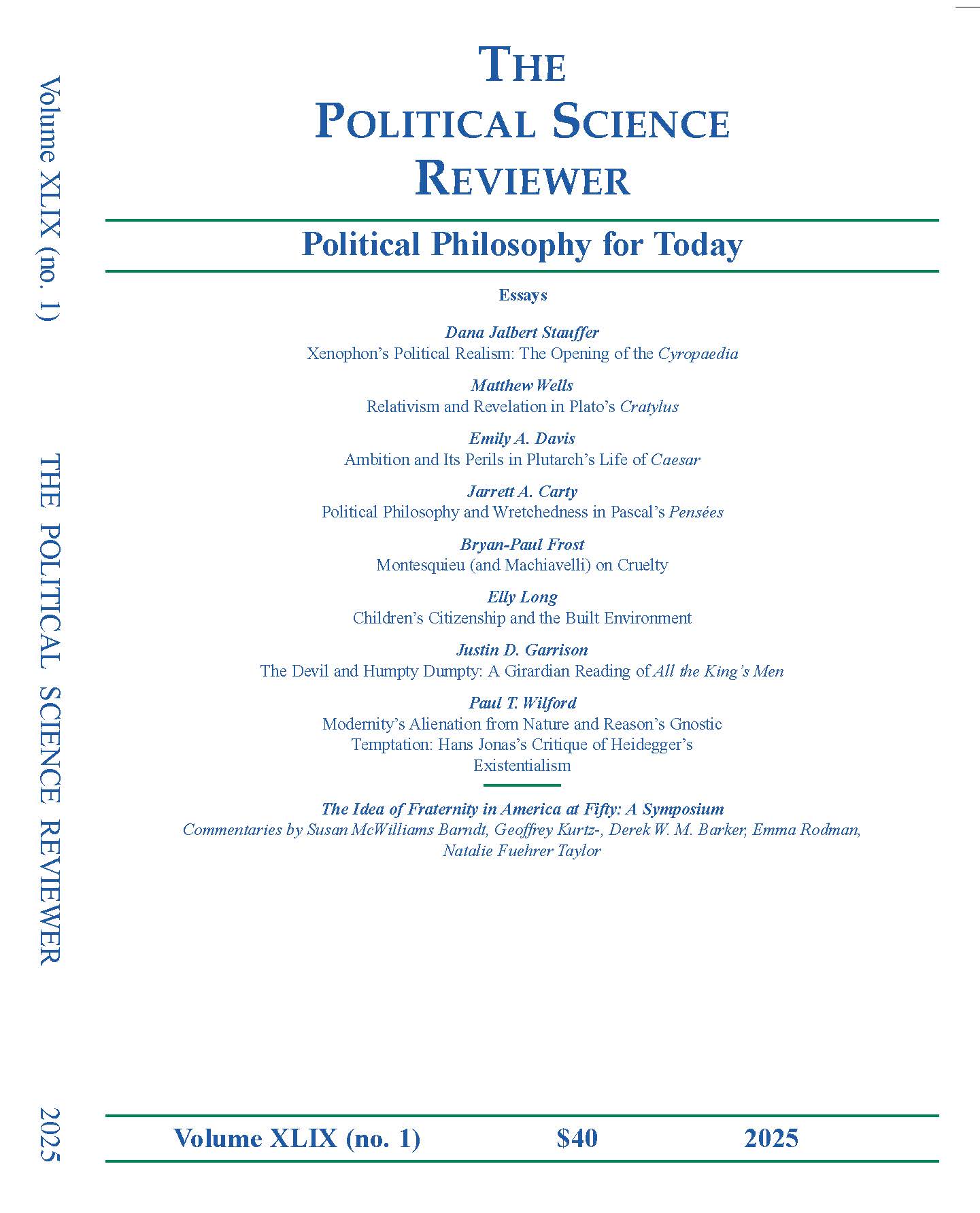Abstract
This study, focusing on the figure of Hermogenes in Plato’s Cratylus and Socrates’s allusions to Euthyphro and to divine inspiration, argues that the dialogue discloses a strange kinship between “perspectivism” or “relativism,” on one hand, and “revelation” or “decisionism,” on the other. It finds that Socrates concedes surprisingly significant ground to those positions. And, finally, it gives a view of Socrates’s dialectical response in light of that ground he is forced to concede.
